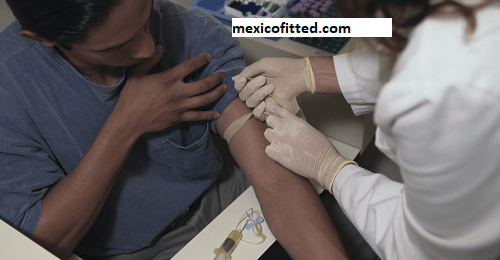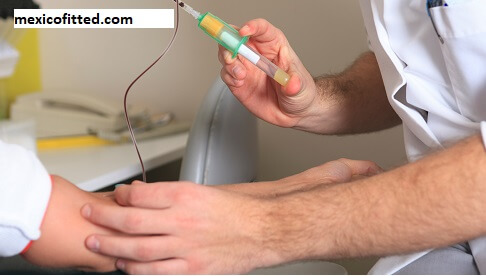The Complete Travel Phlebotomy Guide:
Travel Phlebotomy:
Travel phlebotomy is a fabulous career path where health professionals can integrate their blood-collecting skills with the thrill of traveling to other destinations. This article will discuss what travel phlebotomy includes, what opportunities it offers and what challenges it presents, the qualifications required for this type of post, how to obtain these roles, and hints at succeeding in this dynamic field.

What is Phlebotomy?
Travel Phlebotomy:
Phlebotomy is the act of collecting blood from patients for medical testing, transfusions, donations, or research purposes. Being part of the healthcare machinery, a phlebotomist guarantees the process of collecting blood samples with safety and efficiency. The profession can be practiced in hospitals, clinics, laboratories, or blood donation centers.
Key Responsibilities of a Phlebotomist:
Travel Phlebotomy:
- Blood Collection: The processes of venipuncture and capillary puncture in withdrawing blood.
- Patient Contact: Instructing the patient about the procedure so that they are not afraid or worried
- Specimen Collection: Labelling and transporting blood samples to laboratories for analysis.
- Record Keeping: Maintaining accurate records for blood collections with the patient’s details and sample details.
- Infection Prevention: Ensuring proper hygiene and safety measures are taken to prevent contamination.
What is Travel Phlebotomy?
Travel phlebotomy is a site-to-site assignment wherein the phlebotomist works in various sites, usually through a staffing agency. Assignments may be a few weeks or several months in length. Traveling phlebotomists may be assigned to work during seasonal demand and to fill vacancies where staff shortages exist.
Advantages of Travel Phlebotomy:
Travel Phlebotomy:
1. Higher Pay
Traveling phlebotomy jobs are remunerated better than stationary ones, as money is a very big attraction. Most of the travel assignments offer extra incentives like housing allowances, meal allowances, and other traveling costs, keeping one financially great.
2. Flexibility
Phlebotomists traveling get to pick where they want to work, the facility or town they wish to serve, and how long they spend in the area. Thus, this provision ensures a balance between work and personal life.
3. Diverse Experience
Travel Phlebotomy:
Travel phlebotomists encounter many procedures, technology, and patient populations during their work, which helps them enhance their skills and add to the knowledge within the profession.
4. Networking
Travel phlebotomy brings an excellent platform for networking with a wider spectrum of medical professionals. This can eventually translate into job opportunities and professional collaborations.
5. Adventure and Exploration
For individuals who love traveling and exploring cities, cultures, and other places while working within the healthcare sector, travel physiotherapy is a great career. Each assignment you get can give you a new experience; you might start it with your local attractions as well as enjoy the regional cuisine.
Duties of a Travel Phytomist:
Travel Phlebotomy:
Travel phlebotomists share lots of responsibility with the stationery but need to adapt themselves to the new environment instantly. Some of the key responsibilities are as follows:
1. Blood Collection
Total blood samples were collected in different facilities, being mindful of the comfort and security of patients.
2. Patient Interaction
Speaking to patients to inform them of the process or procedure, at ease any fears and anxieties, and to reassure them as occasion demands.
3. Sample Collection and Recording
Travel Phlebotomy:
Properly label and document the blood samples collected according to the norms of each facility so that the testing and reporting are in order.
4. Adherence to Protocols
Seeking an understanding and familiarity with each facility’s procedures and protocols within a short timeframe to ensure safe and effective management of care.
5. Infection Control and Safety
Travel Phlebotomy:
Ensuring strict hygiene and infection control practices to protect the patients as well as healthcare workers.
Traveling Phlebotomist Entrance Requirement:
1. Education
Most employers require a high school diploma or equivalent. Many phlebotomists have formal training programs that are offered at community colleges or vocational schools, lasting between a few months and one year.
2. Certification
Certification is not always mandatory but is highly recommended and sometimes preferred by the employer. There are some certification exams conducted by organizations such as the National Phlebotomy Association (NPA) and the American Society for Clinical Pathology (ASCP). Such certification can increase the chances of getting a job.
3. State License
Several states require licensing to work as a phlebotomist. Verify the licensing requirements of the states in which you plan to work.
4. Experience
The majority of travel phlebotomy positions necessitate having at least one to two years of experience in a clinical setting. Experience exposes the phlebotomist to various procedures and patient interactions.

5. Flexibility
Travel phlebotomists need to be very flexible because they are always exposed to differences in the work environment, procedures, and team dynamics day in and day out.
How to Get Travel Phlebotomy Jobs:
Travel Phlebotomy:
1. Explore Travel Agencies
Many staffing agencies specialize in healthcare placements. Research agencies with a good reputation and positive reviews. Some of the more prominent agencies are:
- Medical Solutions
- Cross Country Nurses
- Aureus Medical Group
- FlexCare Medical Staffing
2. Update Your Resume
Prepare a resume focused on the specific needs of your preferred position. Highlight your experience, certifications applied to phlebotomy training, and any special techniques you are well-versed in.
3. Apply for Positions
Once you’ve identified travel staffing agencies that seem to be a good fit, apply to the travel phlebotomy jobs there. Be prepared for interviews that are going to turn towards being technical skills-based, as well as adaptability and communication.
4. Network with Professionals
Travel Phlebotomy:
Connect with other pharmacists and other healthcare professionals on LinkedIn. These networks give you an understanding of the type of jobs out there and what is going on within the world of travel healthcare professionals.
5. Keep Current with Certifications
Further education and maintenance of certifications will boost your probability of employability. More training in enhanced blood collection techniques or patient safety would be an excellent thought process.
Preparation for Your First Travel Assignment:
A first travel assignment in phlebotomy requires thorough preparation for an intense experience.
1. Research the Location
Travel Phlebotomy:
Familiarise yourself with the territory in which you will be assigned. Get to know what amenities and transportation are available to make the transition smooth for you in the area.
2. Understand Facility Protocols
Every health facility has its way of doing things. Review any onboarding materials the placement agency provides to learn about the facility and its expectations.
3. Pack Wisely
for how long you will stay, plus by the climate. Pack any uniforms, scrubs, or personal items you will need so you can live comfortably for as long as you will be at your assignment.
4. You Get Acquainted with Co-Workers
You would become part of a new team as a travel psychologist. That can lead to an environment in the workplace that will be mutually supportive and allow collaboration.
5. Keep in Contact with Agency
Travel Phlebotomy:
Be sure to maintain lines of communication open with your agency during your assignment. They are resources and may also be your sounding board in making tough decisions so that you may adapt more quickly to overcoming problems.
Challenges When Travel Phlebotomy Jobs:
Travel Phlebotomy:
Although there are many positive aspects of travel phlebotomy jobs, there are some challenges:
1. Improving Skills for New Environments
New projects will present a need to acclimatize to the job environment and rules and practices. It can be an overwhelming situation for some people.
2. Solitude and Alienation
Individuals are going on their own. They do experience loneliness. When adapting to working with others or finding local activities to participate in, helps alleviate the stress.
3. Unpredictable Work Environment
Work environments differ at every location. Equipment and the structure for facilities in one area are much more amplified as compared to others.
4. Housing and Logistics
Travel Phlebotomy:
Some of the challenges of travel position placement are locating suitable housing and handling the logistics, particularly in extremely high-demand areas. The agency planners can make it easier to prepare ahead.
5. Security and Job Stability
In terms of job security and stability, permanent positions generally have more stability than travel positions. Knowing the type of position you will have and keeping contact with your agency helps to ease some of the apprehension.
Trends concerning Future Travel Phlebotomy:
Travel Phlebotomy:
With continued changes in the healthcare industry, several trends will impact travel phlebotomy jobs in the future.
1. Higher Demands for Flexibility
Healthcare facilities now expect flexible staffing. As changing needs are portrayed by patients, the need for travel phlebotomists is supposed to increase.
2. Technological Advancement
The use of technology in healthcare continues to advance rapidly. This may require the phlebotomist to learn new tools and systems, making their work more efficient and accurate while collecting blood.
3. Emphasis on Continuing Education
As methods and technologies in phlebotomy evolve, education will have to be ongoing for the maintenance of skills and knowledge, which may lead to specialized travel positions.
4. Patient-Centered Care Emphasis
Since the patient-centered focus is growing, a travel psychologist must ensure communication skills are very effective and interpersonal approaches to the patient are empathetic.
Success Tips for the Travel Phlebotomist:
Travel Phlebotomy:
To succeed in travel phlebotomy, use the following tips:
1. Organisation
That means keeping track of your assignments and documentation as well as maintaining certifications. Create a reminder with an app or planner to keep on top of your schedule. Do not forget to get your paperwork in on time.
2. Communication Skills
Healthcare requires excellent communication skills. Learn to express procedures clearly and not fail to empathize with your patients when they need it most, as you need to build that trust and rapport with them.
3. Appraise Feedback
Accept constructive criticism. Learn from your experiences as you post to different facilities. Adaptability will make your skills and prowess an even better phenomenologist.
4. Building Professional Relationships
Travel Phlebotomy:
Building relationships with fellow workers in any firm will also pay off worthwhile experiences through challenging assignments. New jobs may come from networking.
5. Positive Attitude
Traveling work can be very demanding, but a good attitude will help you tackle all the problems ahead of time and enjoy every bit of traveling.

Conclusion:
Travel Phlebotomy:
Travel phlebotomy offers a great career opportunity with loads of benefits that include really good pay, flexibility, and even exposure to new places. Despite some challenges associated with this career path, opportunities abound for growth and adventure in this field, making it attractive to most medical professionals.
If you’re going to work in travel physiology, ensure that you gain experience specializing in the field. You’ll need certifications and proper communication skills. With proper preparation and the right attitude, you’ll thrive in this dynamic and rewarding profession, contribute to the care of patients, and enjoy the journey of a lifetime. Be it an experienced phlebotomist or someone starting in this career, the world of travel healthcare awaits, promising new experiences and exciting opportunities.